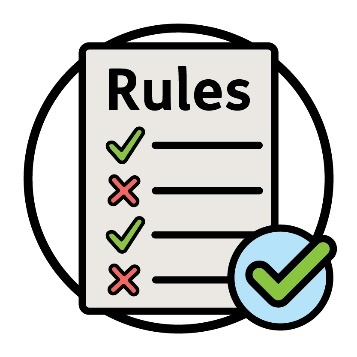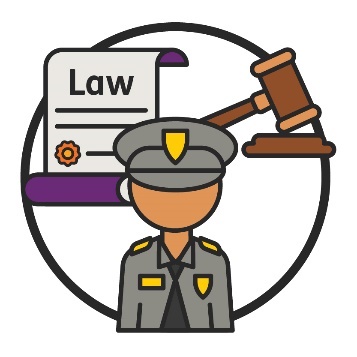What did our Council Members share?
| Our Council Members connect with the community to find out about issues that affect them. |
| Our Council Members shared these issues with the NDIA. |
NDIS plans
| Participants are people with disability who take part in the NDIS. |
| There are examples on the NDIS website to help participants know what they can get funding for. We call them our guidelines. You can find our guidelines on our website. |
| Council Members worry that some examples are not true for all participants. For example, when people live far away from cities and towns. |
Providers
| Providers deliver services and supports to people with disability. |
Council Members explained that it is harder for some providers to join the NDIS. For example: | |
|
|
|
|
| Council Members shared that too many people don’t know what the NDIS Quality and Safeguards Commission does. We call it the NDIS Commission. |
The NDIS Commission makes sure participants: | |
|
|
|
|
| Council Members also shared that some Specialist Disability Accommodation (SDA) is not good enough. | |
| SDA is accessible housing for people with disability. | |
| When something is accessible, anyone can:
| |
| Members worry that participants are at risk. | |
Reviewing how much services cost
| Every year the NDIA reviews how much NDIS supports cost. They want to make sure the NDIS can last a long time. |
| People worry the NDIA won’t review Individualised Living Options (ILO) costs this year. |
| ILO is a way of setting up the support you want at home. |
| It will get harder to pay for ILO supports because workers will cost more. This means ILO supports might not last a long time. |
| People worry that funding for support coordination has not gone up for 3 years. |
| Support coordination helps participants manage the supports in their plan. |
| This makes it hard for small providers to offer support coordination. |
| The NDIS will also review how much SDA costs. Council Members think this gives the NDIA a chance to make SDA better. |
What the community thinks
| Some people think participants use too much funding. |
| But we know they follow the rules. |
| The Honourable Bill Shorten is the Minister for the NDIS. |
| A minister leads an area of government. |
| Council Members shared how the Minister has done a good job showing the community he supports participants. |
How the NDIA works
| Council Members think the NDIA should hire more people with intellectual disability. This shows other organisations they can too. |
| People shared they have to wait a long time when they call the NDIS. And they might not get answers to their questions. |
| The NDIA should tell people how to ask the NDIA to review the decision if they can’t use the NDIS. And they should tell them in writing. |
| People also shared that some people have trouble finding and keeping workers with the right skills. This includes:
|
Working with governments
| Council Members think the NDIA should do more work with state and territory governments. They need to make better ways to support participants in the:
|
| The child protection system is how governments protect children at risk of harm. |
| The justice system includes:
|
What did our Council Members share?
| Our Council Members connect with the community to find out about issues that affect them. |
| Our Council Members shared these issues with the NDIA. |
NDIS plans
| Participants are people with disability who take part in the NDIS. |
| There are examples on the NDIS website to help participants know what they can get funding for. We call them our guidelines. You can find our guidelines on our website. |
| Council Members worry that some examples are not true for all participants. For example, when people live far away from cities and towns. |
Providers
| Providers deliver services and supports to people with disability. |
Council Members explained that it is harder for some providers to join the NDIS. For example: | |
|
|
|
|
| Council Members shared that too many people don’t know what the NDIS Quality and Safeguards Commission does. We call it the NDIS Commission. |
The NDIS Commission makes sure participants: | |
|
|
|
|
| Council Members also shared that some Specialist Disability Accommodation (SDA) is not good enough. | |
| SDA is accessible housing for people with disability. | |
| When something is accessible, anyone can:
| |
| Members worry that participants are at risk. | |
Reviewing how much services cost
| Every year the NDIA reviews how much NDIS supports cost. They want to make sure the NDIS can last a long time. |
| People worry the NDIA won’t review Individualised Living Options (ILO) costs this year. |
| ILO is a way of setting up the support you want at home. |
| It will get harder to pay for ILO supports because workers will cost more. This means ILO supports might not last a long time. |
| People worry that funding for support coordination has not gone up for 3 years. |
| Support coordination helps participants manage the supports in their plan. |
| This makes it hard for small providers to offer support coordination. |
| The NDIS will also review how much SDA costs. Council Members think this gives the NDIA a chance to make SDA better. |
What the community thinks
| Some people think participants use too much funding. |
| But we know they follow the rules. |
| The Honourable Bill Shorten is the Minister for the NDIS. |
| A minister leads an area of government. |
| Council Members shared how the Minister has done a good job showing the community he supports participants. |
How the NDIA works
| Council Members think the NDIA should hire more people with intellectual disability. This shows other organisations they can too. |
| People shared they have to wait a long time when they call the NDIS. And they might not get answers to their questions. |
| The NDIA should tell people how to ask the NDIA to review the decision if they can’t use the NDIS. And they should tell them in writing. |
| People also shared that some people have trouble finding and keeping workers with the right skills. This includes:
|
Working with governments
| Council Members think the NDIA should do more work with state and territory governments. They need to make better ways to support participants in the:
|
| The child protection system is how governments protect children at risk of harm. |
| The justice system includes:
|


































